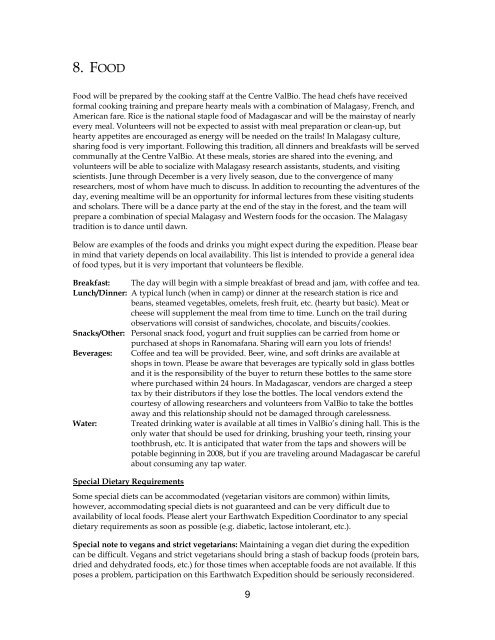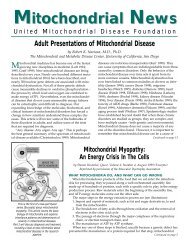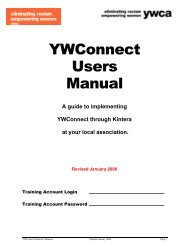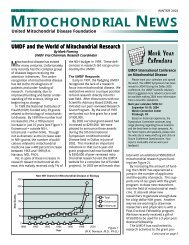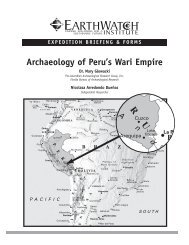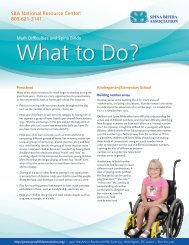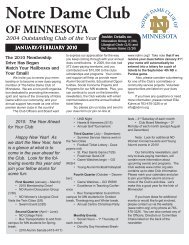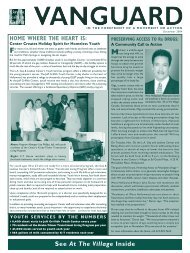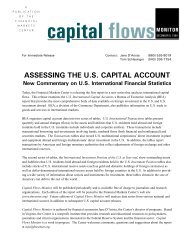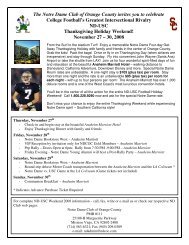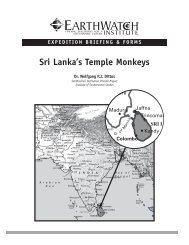Madagascar's Lemurs
Madagascar's Lemurs
Madagascar's Lemurs
Create successful ePaper yourself
Turn your PDF publications into a flip-book with our unique Google optimized e-Paper software.
8. FOOD<br />
Food will be prepared by the cooking staff at the Centre ValBio. The head chefs have received<br />
formal cooking training and prepare hearty meals with a combination of Malagasy, French, and<br />
American fare. Rice is the national staple food of Madagascar and will be the mainstay of nearly<br />
every meal. Volunteers will not be expected to assist with meal preparation or clean-up, but<br />
hearty appetites are encouraged as energy will be needed on the trails! In Malagasy culture,<br />
sharing food is very important. Following this tradition, all dinners and breakfasts will be served<br />
communally at the Centre ValBio. At these meals, stories are shared into the evening, and<br />
volunteers will be able to socialize with Malagasy research assistants, students, and visiting<br />
scientists. June through December is a very lively season, due to the convergence of many<br />
researchers, most of whom have much to discuss. In addition to recounting the adventures of the<br />
day, evening mealtime will be an opportunity for informal lectures from these visiting students<br />
and scholars. There will be a dance party at the end of the stay in the forest, and the team will<br />
prepare a combination of special Malagasy and Western foods for the occasion. The Malagasy<br />
tradition is to dance until dawn.<br />
Below are examples of the foods and drinks you might expect during the expedition. Please bear<br />
in mind that variety depends on local availability. This list is intended to provide a general idea<br />
of food types, but it is very important that volunteers be flexible.<br />
Breakfast: The day will begin with a simple breakfast of bread and jam, with coffee and tea.<br />
Lunch/Dinner: A typical lunch (when in camp) or dinner at the research station is rice and<br />
beans, steamed vegetables, omelets, fresh fruit, etc. (hearty but basic). Meat or<br />
cheese will supplement the meal from time to time. Lunch on the trail during<br />
observations will consist of sandwiches, chocolate, and biscuits/cookies.<br />
Snacks/Other: Personal snack food, yogurt and fruit supplies can be carried from home or<br />
purchased at shops in Ranomafana. Sharing will earn you lots of friends!<br />
Beverages: Coffee and tea will be provided. Beer, wine, and soft drinks are available at<br />
shops in town. Please be aware that beverages are typically sold in glass bottles<br />
and it is the responsibility of the buyer to return these bottles to the same store<br />
where purchased within 24 hours. In Madagascar, vendors are charged a steep<br />
tax by their distributors if they lose the bottles. The local vendors extend the<br />
courtesy of allowing researchers and volunteers from ValBio to take the bottles<br />
away and this relationship should not be damaged through carelessness.<br />
Water: Treated drinking water is available at all times in ValBio’s dining hall. This is the<br />
only water that should be used for drinking, brushing your teeth, rinsing your<br />
toothbrush, etc. It is anticipated that water from the taps and showers will be<br />
potable beginning in 2008, but if you are traveling around Madagascar be careful<br />
about consuming any tap water.<br />
Special Dietary Requirements<br />
Some special diets can be accommodated (vegetarian visitors are common) within limits,<br />
however, accommodating special diets is not guaranteed and can be very difficult due to<br />
availability of local foods. Please alert your Earthwatch Expedition Coordinator to any special<br />
dietary requirements as soon as possible (e.g. diabetic, lactose intolerant, etc.).<br />
Special note to vegans and strict vegetarians: Maintaining a vegan diet during the expedition<br />
can be difficult. Vegans and strict vegetarians should bring a stash of backup foods (protein bars,<br />
dried and dehydrated foods, etc.) for those times when acceptable foods are not available. If this<br />
poses a problem, participation on this Earthwatch Expedition should be seriously reconsidered.<br />
9


